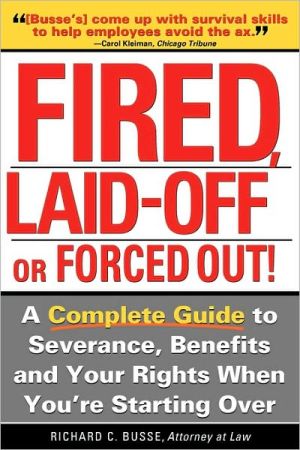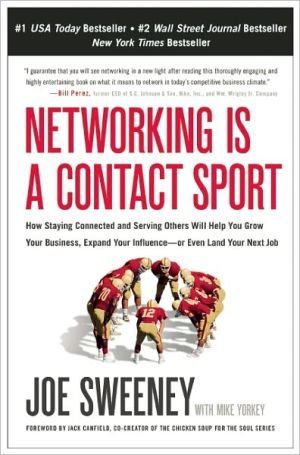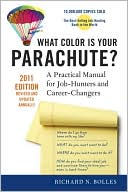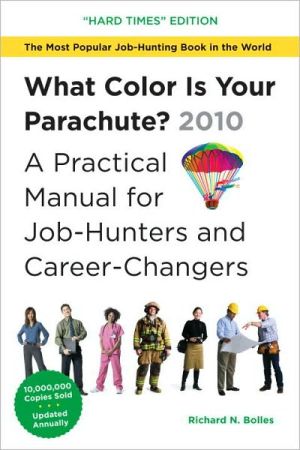Fired, Laid Off or Forced Out
You're Fired!\ Those are the two words every employee dreads. But what does it really mean to be let go, and more important, what can you do to turn this situation into an opportunity for future success?\ Fired, Laid-Off or Forced Out takes the fear out of the possibility of losing your job and replaces it with specific guidelines any worker can use to protect his or her rights. From the factory worker to the professional, the salesperson to upper management, anyone can benefit from the...
Search in google:
Fired, Laid-Off or Forced Out takes the fear out of the possibility of losing your job and replaces it with specific guidelines any worker can use to protect his or her rights. Library Journal This book is for the employee who fears termination or who has recently been terminated. Busse, an author and attorney specializing in plaintiff's employment law, begins with an overview of at-will employment and the circumstances under which an employee can be terminated. There are tips for avoiding termination that include how to make use of in-house human resources departments and how to manage volatile workplace situations. Specific advice is included for chief executives, local government officials, and middle managers. Busse covers what to do when termination is imminent and provides measured, practical guidance on documentation, behavior, and performance. Readers are advised how to handle the actual termination meeting, how to negotiate severance benefits, and how to determine if they have a cause of action for a lawsuit. Busse supplies 50 state surveys of the laws pertaining to terminations with citations to the actual statutes. There is a glossary and list of the Equal Employment Opportunity Commission offices in each state. Recommended for most public libraries.-Joan Pedzich, Harris Beach LLP, Rochester, NY Copyright 2005 Reed Business Information.
Top Ten Wrong Ideas Employees Have about Their Employment Rights\ Excerpted from Fired, Laid Off, or Forced Out! by Richard C. Busse © 2005\ Most employees are at-will employees who may be terminated for any or no reason, unless the real reason falls within one of the exceptions to that rule. Because those exceptions are not well understood and may not apply in some situations, employees are frequently misinformed about the extent of their legal protection at the very time it matters most-when they must respond to an adverse personnel action.\ What follows are the top ten i n c o r re c t notions held by employees about their employment rights.\ 1. There is due process in the workplace.\ Most workers can be terminated at the whim of the employer at any time, for any lawful reason, with or without due process. Even employers who purport to follow a progressive discipline system, in which progressively severe levels of discipline will precede termination, typically retain the right to skip steps and proceed to termination immediately. There are only four exceptions to the general no due process rule that are only available to limited groups of workers. Those exceptions are:\ ? union workers with a strong c o l l e c t i v e bargaining agreement;\ ? non-management government workers in the public sector;\ ? Nevada workers in cases when an employee's integrity is questioned on information by a spotter; and,\ ? workers with an employment contract specifically granting due process.\ 2. You have a right to know why you have been terminated.\ Except in Indiana, Maine, Minnesota, and Missouri-where an employer must provide a written statement of reasons for termination to a terminated employee - your employer does not have to tell you why you were fired. In the great majority of states, your employer can simply tell you, "You're fired." While that may create anger and only drive you to seek out a lawyer, in forty-six states, that is the only information your employer is required to give you .\ 3. If you are hired for a particular job, your employer cannot change it.\ Except for restrictions contained in collective bargaining agreements, self-imposed government regulations, or individual employment contracts, although you may have been recruited or hired for one position, your employer can change your job altogether after you are hired. You are free to refuse to accept the change, but if you do, your employer is likewise free to fire you for your refusal.\ 4. After you are hired, your employer cannot reduce your pay.\ Subject to contract requirements and government regulations, an employer is free to reduce your pay prospectively. Although an employer cannot hire you today for $10.00 an hour and pay you $8.00 at the end of the day, it can tell you today that if you show up for work tomorrow, your pay will be $8.00 from that point forward.\ 5. You have free speech rights to express your opinion at work.\ The guarantee of free speech that is contained in the Bill of Rights to the United States Constitution is a limitation on governmental power, not the power of private individuals or entities (such as corporations). Therefore, an employer is free to terminate you for expressing your opinion. (The exception is in Connecticut, which by statute prohibits both public and private employers from, in some circumstances, terminating employees for speaking out on matters of public concern.)\ 6. On-the-job harassment is illegal.\ There is no law against harassment, generally. While some employers may prohibit harassment in the form of an enforceable policy statement, harassment itself becomes illegal only if it was committed because of your protected class status. So unless you are being harassed because of your race, color, sex, age, religion, or disability, or because you have engaged in protected activity (such as resisting sexual harassment), nothing bars an employer from engaging in some form of harassing behavior toward you.\ 7. On-the-job discrimination is illegal.\ Discrimination, like harassment, is not unlawful, generally. An employer is free to discriminate by giving better treatment to some employees over others (as long as it is not because of an employee's membership in a protected class or because they had engaged in some form of protected activity).\ 8. Your boss cannot retaliate against you.\ Retaliation, in general, is not unlawful. Retaliation becomes unlawful when it is committed because an employee has engaged in activity that is protected as a matter of public policy, such as reporting illegal activity, reporting to jury duty, filing a workers' compensation claim, or resisting sexual harassment.\ In addition, retaliation can be unlawful if your employer has entered into a binding agreement not to retaliate against you if, for example, you utilize its open door policy. Most employers, however, try not to make unqualified legally enforceable promises like that to their employees.\ 9. Your boss must be fair with you.\ There is no law that expressly says an employer must be fair with you. Therefore, with few exceptions, there is no law requiring your employer to be fair with you in making employment decisions that affect you.\ 10. Your employer must always choose the best qualified person.\ There is no law that expressly requires an employer to hire the best qualified candidate for a position. Outside of some civil service constraints in the public sector, such as qualification lists for police and fire positions, there is no law barring employers from hiring unqualified candidates. (This may not be the wisest business decision, but it occurs frequently-think family members.)\
IntroductionChapter 1: Discharge as an At-Will Employee - -Debunking Myths about Your Employment RightsChapter 2: Strategies to Survive a Disciplinary Action - -Are You Really on a Termination Track? -How Employee Discipline Works -How to Survive Employee Discipline -Top Ten Rules to Survive Discipline -Top Ten Rules to Survive DisciplineChapter 3: How to Diffuse Potentially Volatile Situations -Strategies for Executives -Strategies for Mid-level Managers -Strategies for First-Line, Nonunion Supervisors -Strategies for Commissioned Salespersons -Strategies for Nonunion, Hourly Workers -Strategies for Probationary Employees -Survival TipsChapter 4: Using HR to Survive Abuse at Work -Your Need to Report Harassment -Using Good Judgment in Reporting Harassment -The Trick is to Change the Subject -Verifying Complaints -Considerations That Affect Your Reporting Decision -Tips for Dealing with Human ResourcesChapter 5: Strategies to Preempt or Prevent an Anticipated Termination - -Strategy 1: Preempt it by Proposing that You Resign -Strategy 2: Demonstrate Submission -Strategy 3: Enlist Third-Party Assistance -Strategy 4: Assume a Legal Posture -Strategy 5: Engage in a Political WarChapter 6: Managing an Imminent Termination - -Ensure Your Performance is Documented -Begin a Narrative of Events -Make a List of Witnesses -Start Networking -Consider Consulting with an Attorney -In the Meantime, Do Your Job -Mend Fences -Be Mindful of Any Upcoming Dates -Watch Out forTraps -Review Your Employer's Benefit Offerings -Do Not Create a Sense of Impending Doom -Do Not Argue Your Case to Your Co-Workers -Do Not Ask Your Boss for Reassurance -Do Not Give Up and Stop Performing -Do Not Engage in Desperate Defensive Measures -Do Not Go on Vacation -Do Not Just Quit -Do Not Make Illegal Tape Recordings -Do Not Access Information without Authority -Do Not Give Your Employer an Excuse -Do's and Don'ts in Anticipation of a TerminationChapter 7: Handling the Termination Itself -The Termination Meeting -Posttermination Winding Up -The Exit Interview -Your Final Check and Benefits -Posttermination Filings to Protect Your Rights -The Effect of Termination on Your Receipt of Benefits -Termination Tips -Termination TipsChapter 8: Immediately after Your Termination -Remain Calm -Ask Probing Questions -Remove All Personal Belongings at Your Earliest Opportunity -Relinquish All Keys and ID Badges when Requested -Record What was Said in the Termination Meeting -Request a Copy of Your Personnel File -Let Your Family and Friends Take Care of You -If You Need It, Seek Emotional Counseling -Seek Legal Advice Only from a Knowledgeable Lawyer -As Soon as You are Able, Look for Other Work -Do Not Start Cutting Your Own Deal -Do Not Release Your Employer Without Consulting a Lawyer -Do Not Write a Letter of Protest to the Company -Do Not Start Writing Letters to Your Congressional Delegation -Do Not Engage in Physical Harm -Do Not Remove Anything that Does Not Belong to You -Do Not Refuse to Return Property Belonging to the Employer -Do Not Immediately File an Internal, Nonunion Grievance -Do Not Sign a Confession -Do Not Try to Handle it Alone -Termination TipsChapter 9: Negotiating a Severance Agreement -How to Get More Severance -The Contents of Your Severance Agreement -Severance Tips ListChapter 10: All About Lawyers -How to Find a Lawyer -Engaging Your LawyerChapter 11: Unlawful Terminations -Public Policy Wrongful Discharge -Wrongful Constructive Discharge -State Statutory Solutions -Discrimination Laws -Opposition and Retaliation Statutes -Employment ContractsChapter 12: Other Legal Claims -Intentional Infliction of Severe Emotional Distress -Intentional Interference with Economic Relations -Invasion of Privacy -Defamation -MisrepresentationChapter 13: Termination of Special Group Members -Termination of Union Workers -Termination of Government EmployeesChapter 14: Evaluating Your Termination Case -Evaluating Whether You Have a Case -Evaluating the Problem of Your Case -Evaluating Your Case when the Employer Covers Its Tracks -Factors Affecting Your Case -Other Factors that Can HelpChapter 15: Mistakes Employers Make -Top Ten ComplaintsChapter 16: Deciding Whether to Pursue Your Case -Your Need for Litigation -Your Support from Others for Litigation -Your Health -The Effect on Your MarketabilityChapter 17: What to Expect During Litigation - -Prefiling Stage -Trial Stage -Appeal StageChapter 18: Things You Can Do to Help Your Lawyer Win -Provide Requested Information in a Timely Manner -Stay in Communication with Your Lawyer -Treat Your Lawyer as a Member of Your Team -Be Flexible with Your Schedule -Follow Your Lawyer's Advice -Do Not Shoot the Messenger -Try to Control Your Relatives -Do Not Fall in Love with Your Case -Do Not Pull Any Surprises -Keep the Faith -Ways to Help Your Lawyer WinChapter 19: Common Questions About Case Settlements -Chapter 20: Special Rights and Benefits Legislation -Unemployment Compensation -Health Insurance Legislation-Consolidated Omnibus Budget Reconciliation Act (COBRA) -The Health Insurance Portability and Accountability Act (HIPPA) -Retirement Legislation-ERISA -Notice of Plant Closure Legislation -Employee Leave Legislation -Basic Provisions -FMLA and the ADAChapter 21: 12 Steps to Build Your Workplace Power -Step One-Learn to Like the People You Work With -Step Two-Communicate Often with Your Supervisor -Step Three-Never Turn Down an Invitation -Step Four-Do Not Be Afraid to Socialize with Your Boss -Step Five-Socialize with Your Co-Workers -Step Six-Make Your Co-Workers Feel Good about Themselves -Step Seven-Do Not Forget Who Brought You to the Dance -Step Eight-Never Violate a Confidence -Step Nine-Never Refuse an Assignment if You Can Help It -Step Ten-Know Your Supervisor's Expectations -Step Eleven-Never Speak Ill of the Company -Step Twelve-If You Are Unhappy, Do Not Broadcast It at Work -The 12 StepsEpilogue -Glossary -Appendix A: Frequently Asked Questions -Appendix B: Payment of Wages Upon Termination -Appendix C: Effect of Misconduct on Unemployment Benefits -Appendix D: State Discrimination Laws and Agencies -Appendix E: EEOC Office Directory -Appendix F: Miscellaneous State Laws of Interest -Appendix G: Notable Wrongful Discharge Cases -Index -About the Author -
\ Library JournalThis book is for the employee who fears termination or who has recently been terminated. Busse, an author and attorney specializing in plaintiff's employment law, begins with an overview of at-will employment and the circumstances under which an employee can be terminated. There are tips for avoiding termination that include how to make use of in-house human resources departments and how to manage volatile workplace situations. Specific advice is included for chief executives, local government officials, and middle managers. Busse covers what to do when termination is imminent and provides measured, practical guidance on documentation, behavior, and performance. Readers are advised how to handle the actual termination meeting, how to negotiate severance benefits, and how to determine if they have a cause of action for a lawsuit. Busse supplies 50 state surveys of the laws pertaining to terminations with citations to the actual statutes. There is a glossary and list of the Equal Employment Opportunity Commission offices in each state. Recommended for most public libraries.-Joan Pedzich, Harris Beach LLP, Rochester, NY Copyright 2005 Reed Business Information.\ \








